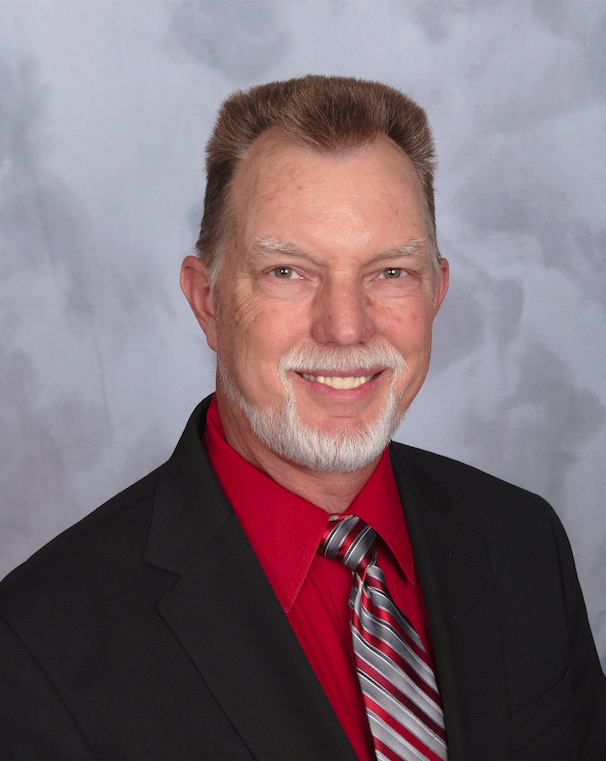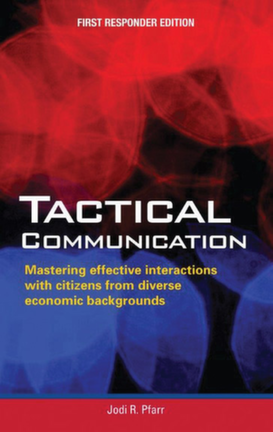 Question: Does anyone know how you stay married for 37 years?
Question: Does anyone know how you stay married for 37 years?
Answer: Give her whatever she wants.
And that is pretty much how I came to my aha! moment. My wife, Donna, was scheduled to attend a seminar on A Framework for Understanding Poverty in Tulsa, Oklahoma, where Dr. Ruby Payne was speaking. She asked me to go, and I did what every red-blooded American male with a law enforcement background does in these situations: I whined like a baby.
“I don’t want to sit around, hold hands, and sing ‘We Are the World,’” I complained. “This is for teachers. What can it possibly have for me in policing?” But, like I said, if you have been married for 37 years and you want to make it to 38, you go. So I went.
As I sat listening to Dr. Payne talk about her research and experiences, including the hidden rules of poverty and the systems built on middle class rules, it dawned on me that this would be great training for law enforcement. I was serving as a chief of police for the largest school district in Oklahoma, serving more than 40,000 students with a free and reduced lunch rate of more than 90%.
I had served in law enforcement for more than 35 years and knew that the overwhelming number of calls for service come from people within poverty, particularly generational poverty. So with keen interest I listened and learned. And I did something I had never done: At the break in the seminar, I went up to talk to the speaker, Dr. Ruby Payne.
 I explained that I thought this information would provide law enforcement with a great set of tools to use in the profession. Dr. Payne then informed me that a book had just been released, Tactical Communication, and that Jodi Pfarr had worked closely with law enforcement to make the book a reality. I couldn’t wait to get it!
I explained that I thought this information would provide law enforcement with a great set of tools to use in the profession. Dr. Payne then informed me that a book had just been released, Tactical Communication, and that Jodi Pfarr had worked closely with law enforcement to make the book a reality. I couldn’t wait to get it!
Once I read Tactical Communication, the aha! moment became real. I worked to see that my officers were trained on this information and saw a significant difference in their methods when dealing with students and parents within generational poverty. From time to time, a challenge would occur with a student or adult, and we would refer back to Tactical to reinforce what we had learned. I saw a few things happen regularly:
- Citizen complaints and use of force issues were reduced.
- Officers used the information to help build relationships, which resulted in students sharing a great deal more information than they had before. The results were prevention of violent offenses, identification of criminal activity, and recovery of weapons and stolen property.
- Officers did not stress as much about the recurring bad choices students and their parents made. It was easier to recognize the behavior as a result of an economic situation rather than a personal attack on the school or on the officer.
- Officers developed a greater understanding of the people they were sworn to protect. They became more understanding of the impact of generational poverty on styles of behavior. Sometimes applying their personal middle class expectations was neither accurate nor fair.
I’ve used the information in Tactical Communication as a part of the regular training we do across Oklahoma. As we concluded our training for the Muskogee Police Department, it was clear to me that what we found to be true in the beginning has remained. I am convinced this training can offer significant improvement for law enforcement agencies across the country. But it shouldn’t stop there. Application across the criminal justice system, which would bring in prosecutors, judges, probation officers, and others, would be the next logical step in this process.
After all, once you have experienced the aha! moment, isn’t it natural to take the next step and share it?
Gary Rudick is a 35-year veteran of law enforcement in Oklahoma, serving the citizens of the state as a patrol officer, supervisor and chief of police. He has a Master’s in Criminal Justice and is a graduate of the FBI National Academy, Session 242. He led one police agency to receive the International Association of Chiefs of Police Civil Rights Award, and the same agency was recognized for achieving state accreditation. Read more about Gary.








